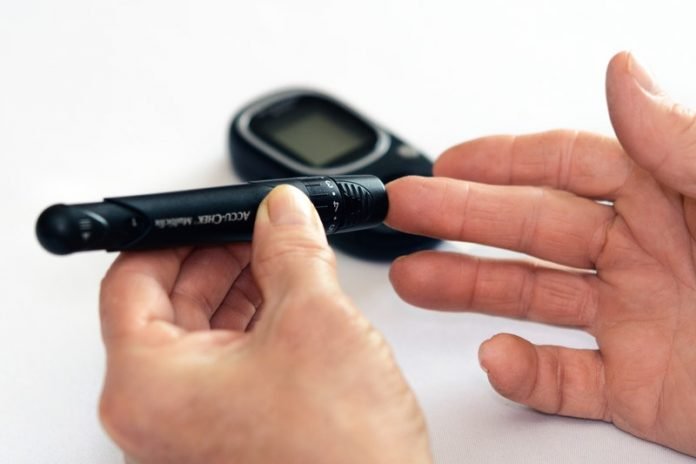
In a new study, researchers found a brisk evening walk before dinner does not affect glucose levels in people with type 2 diabetes.
They found no difference between 50 minutes of walking in the afternoon and 50 minutes of sitting on the 24-hour glucose profile.
The research was conducted by a team from the University of Alberta.
In the multi-site study, the team followed 80 people with type 2 diabetes for one week.
Participants took a continuous glucose monitor, and they ate a standardized diet with eating instructions.
They ate a lunch three to five hours before walking for 50 minutes, with dinner consumed immediately after.
Walking was chosen because it is a preferred activity for people with diabetes and the afternoon was chosen for convenience for participants who work.
But the team found no difference between 50 minutes of walking in the afternoon and 50 minutes of sitting before dinner on the 24-hour blood sugar levels.
This was quite surprising given it was a bit different from the studies we’ve seen in the past.
Previous studies had found exercise has a beneficial effect on glucose levels in those with type 2 diabetes.
In those studies, exercises were completed in the morning, typically after breakfast.
When people eat a meal, the food gets absorbed into the bloodstream as glucose, which can cause a spike in the blood sugar.
If people can time their exercise to when they see that spike, they can use exercise, which uses glucose for fuel, to lower that spike after a meal.
However, the timing of walking in the current study may not have been ideal to lower 24-hour glucose levels, as observed in previous studies.
Despite moderate levels of exercise before dinner having no effect on blood sugar, the team says the team still encourages exercise for the many health benefits it provides.
The Canadian Physical Activity Guidelines and the position statement of the American Diabetes Association recommend 150 minutes per week of moderate-intensity exercise.
Future work needs to find out when is the most optimal time of day for diabetic people to complete their exercise.
The lead author of the study is Jordan Rees, a Ph.D. student in U of A diabetes researcher Normand Boulé’s Physical Activity and Diabetes Laboratory.
Copyright © 2019 Knowridge Science Report. All rights reserved.



